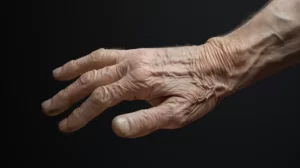Overexposure to sunshine is a significant risk factor for developing skin cancer. Protecting your skin from harmful ultraviolet (UV) rays is crucial to prevent this dangerous disease. But what if a B vitamin could also help ward off skin cancer? Research suggests that one type, nicotinamide (vitamin B3), might do just that.
The Power of Vitamin B3
A study in Australia examined people with a history of recurrent skin cancer, defined as having at least two cancerous growths in the past five years. The researchers found that nicotinamide, a form of vitamin B3, reduced the likelihood of non-melanoma cancers returning by 23%.
Additionally, they found that using nicotinamide topically or as a supplement could help fight cancer. This vitamin may also reduce or eliminate pre-cancerous lesions and lower the risk of melanoma. However, the research on melanoma is still ongoing.
The study shows that vitamin B3 is effective against skin cancers linked to both major types of ultraviolet light: UVA and UVB. Researcher Diona Damian explained to Oncology Times, “We were looking for something to counter both of these UV pathways to skin cancer, and we have shown over the past 10 years that nicotinamide provides skin cells with an energy boost, resulting in enhanced DNA repair and restoring skin immunity.”
One of the most appealing aspects of nicotinamide is its affordability. Damian pointed out that “it’s almost obscenely inexpensive, and it’s already widely commercially available, so this one’s ready to go straight into the clinic.”
Niacin vs. Nicotinamide
It’s essential to understand that nicotinamide is not the same as niacin, another form of vitamin B3. Niacin was not examined in the study, and it has several potential side effects, including hot flashes, low blood pressure, headaches, and possible liver complications.
Damian believes that only those at high risk of skin cancer should use nicotinamide. If you have diabetes or are pre-diabetic, consult a healthcare practitioner before taking the supplement. Some researchers think it could exacerbate blood sugar problems in people with diabetes.
Sun Safety Is Still Important
While taking nicotinamide might help lower your risk of developing skin cancer, it’s still vital to practice sun safety. Limiting your sun exposure and taking precautions when outside are critical steps to protect your skin.
Remember that a small amount of sun exposure is necessary for your body to produce vitamin D and maintain overall health. However, it’s essential to cover up as soon as you notice your skin turning red or becoming uncomfortable. Sunburns are a significant cause of skin damage and increase the risk of skin cancer.
The Takeaway
Vitamin B3, in the form of nicotinamide, is an inexpensive and potentially effective way to protect your skin from cancer caused by harmful ultraviolet rays. However, it is essential to understand the differences between nicotinamide and niacin, the other form of vitamin B3. While nicotinamide is generally safe and affordable, niacin has several potential side effects. Additionally, people with diabetes or pre-diabetes should consult a healthcare professional before taking nicotinamide.
Lastly, even if you choose to take nicotinamide as a supplement, don’t forget to practice sun safety. Reducing your risk of skin cancer is a combination of prevention, protection, and smart choices.



